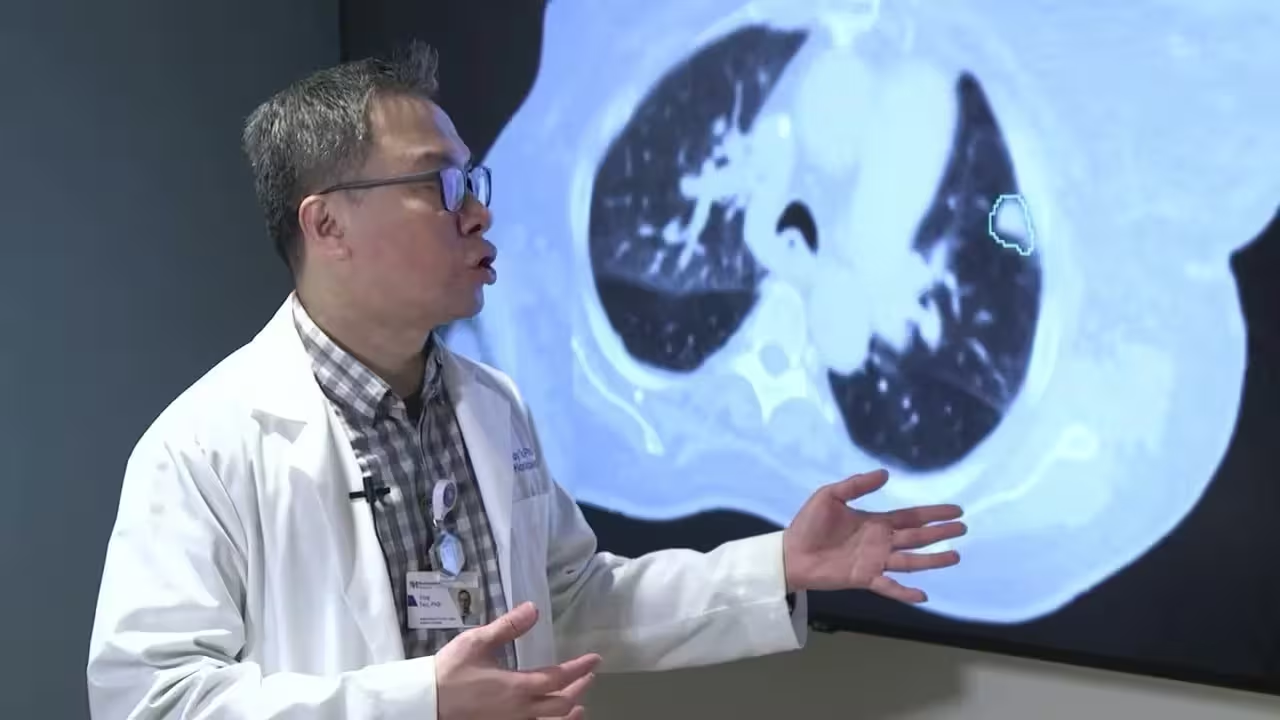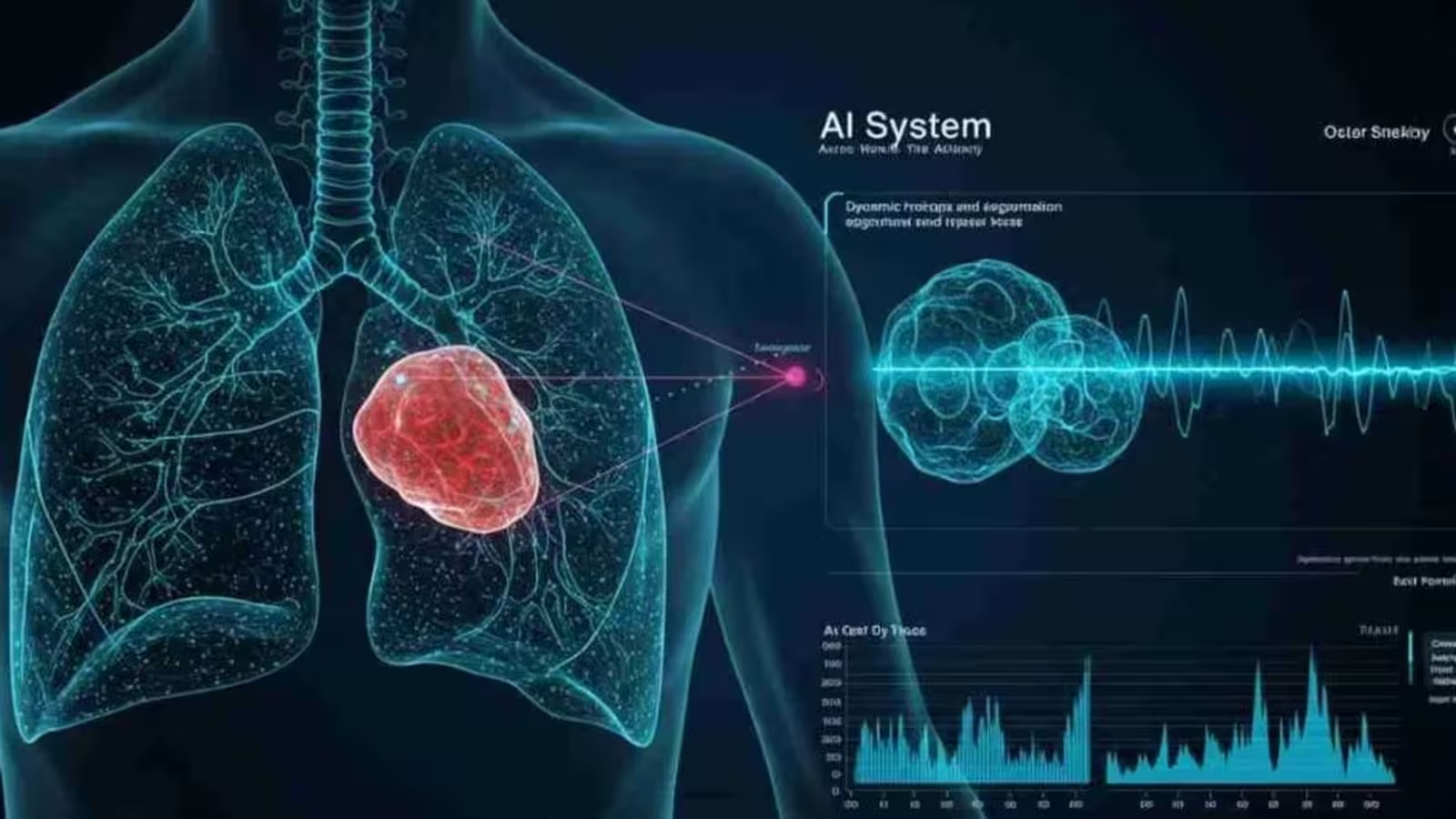4 Minutes
Breakthrough AI Solution for Lung Cancer Detection
A team of researchers from Northwestern Medicine has unveiled a groundbreaking artificial intelligence medical tool known as iSeg, specifically engineered to detect lung tumors in CT scans with remarkable accuracy. What sets iSeg apart is its ability to pinpoint hidden areas of lung tumors that can occasionally elude even expert radiologists, potentially transforming the landscape of cancer diagnosis and treatment planning.
Why Accurate Tumor Segmentation Matters in Cancer Treatment
When it comes to radiotherapy—a crucial component of cancer treatment for nearly half of all cancer patients in the United States—precise identification of a tumor’s size and location is absolutely vital. The process, called tumor segmentation, ensures that high doses of radiation are delivered to cancer cells while sparing healthy tissue. Traditionally, this task has been performed manually by clinicians, a time-consuming approach prone to variability among experts, sometimes resulting in critical tumor regions being missed.
How iSeg Innovates: Advanced AI with 3D Learning
Unlike previous AI tools that were limited to analyzing static medical images, iSeg is the first of its kind to incorporate advanced 3D deep learning algorithms that track lung tumors in motion, adjusting with the patient’s every breath. This dynamic capability is particularly important, as tumor movement can impact the accuracy of both diagnosis and radiation therapy planning.
Dr. Mohammed Abazeed, chair and professor of radiation oncology at Northwestern University, highlights iSeg’s potential, saying, “We’re a significant step closer to delivering more precise cancer treatments than ever imagined a decade ago. Our aim is to empower physicians with better tools, enabling more personalized and effective cancer care.”

Training and Validation: AI Matching—and Surpassing—Specialists
To ensure reliability, the iSeg tool was trained using annotated CT scan data from hundreds of cancer patients—data meticulously segmented by medical professionals. After intensive training, iSeg was tested on new, previously unseen patient scans. The results were compelling: iSeg not only matched expert clinicians in delineating tumors across all test cases, but it also identified additional tumor regions that some doctors had missed. Researchers stress the clinical significance of these findings, as untreated tumor segments could negatively affect patient outcomes.
Lead researcher and first author Susngik Sarkar notes: “Automating and standardizing tumor segmentation with AI can reduce delays, ensure equitable care across hospitals, and reveal tumor areas that may be overlooked by clinicians. Ultimately, this enhances treatment quality and clinical results.”
Core Features and Advantages of iSeg
- 3D real-time deep learning: Tracks tumor movement during patient breathing for highly accurate targeting.
- Superior precision: Detects hidden or ambiguous tumor regions missed in manual reviews.
- Scalability: Designed to streamline workflow and reduce segmentation variability across medical centers.
- Customizable feedback: Plans are underway to enable user feedback and adapt AI outputs in real-world scenarios.
- Versatile expansion: Developers are working to adapt iSeg for other cancers, including liver, brain, and prostate, as well as integration with MRI and PET imaging modalities.
Market Relevance and Future Applications
With artificial intelligence poised to redefine medical imaging and precision oncology, iSeg stands at the forefront of digital health innovation. Its robust ability to detect challenging and subtle tumor areas could usher in a new era of equitable and effective cancer treatment across diverse healthcare systems.
The research team is currently validating iSeg in real-world clinical environments, comparing live results between the AI tool and practicing physicians. The ultimate goal: to fine-tune the technology for a broad range of tumors and imaging technologies, while continuously improving performance based on practitioner feedback.
Publication and Recognition
The full findings on iSeg’s development and performance have been published in npj Precision Oncology, underscoring its significance in the ongoing evolution of AI-driven healthcare.
Source: itresan



Comments